Mike Nichols’ CLOSER Explained. The Game of Deception
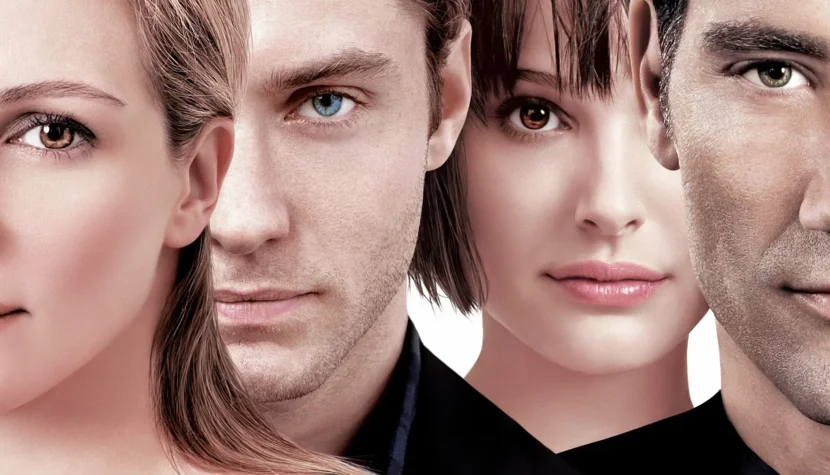
It takes a lot of effort to follow and interpret them, especially since this interpretation can be misleading and lead you astray, as each new twist shatters the assumptions made. It is an analysis of the emotions driving the mechanics of relationships, based on one overarching thesis—controversial, brutal, and, nonetheless, somewhat oversimplified. It would be too easy if it were simply so bad.
WARNING! THE TEXT CONTAINS SPOILERS!
Dan is an unfulfilled writer, professionally “you could say a journalist,” dealing with writing obituaries.
One day he accidentally meets a charming girl who is hit by a car right in front of him. The accident is minor, ending with only a leg injury, but Dan and Alice clearly like each other. So much so that they can later celebrate this meeting as the beginning of their relationship, celebrating its anniversaries. Inspired by Alice, Dan publishes a book based on her life. On this occasion, he meets with a professional photographer, Anna, for a photo shoot. Their first meeting ends with a passionate kiss. However, Anna immediately backs off when she learns that Dan is involved with the heroine of his book. For him, this is clearly not an obstacle, even though he declares his steadfast feelings for Alice. Anchored in his delusions, Dan conducts a strange diversion—pretending to be Anna, he engages in a highly erotic dialogue in a chat with Larry, a dermatologist. The result of this conversation is an arranged meeting between Larry and Anna—although everything is revealed then, Anna and Larry decide to continue seeing each other. This continues until Anna’s photography exhibition. At this exhibition, an affair begins between Anna and Dan, which will last behind Larry and Alice’s backs for a year. And that’s not the end of the complicated arrangements connecting this quartet… Closer
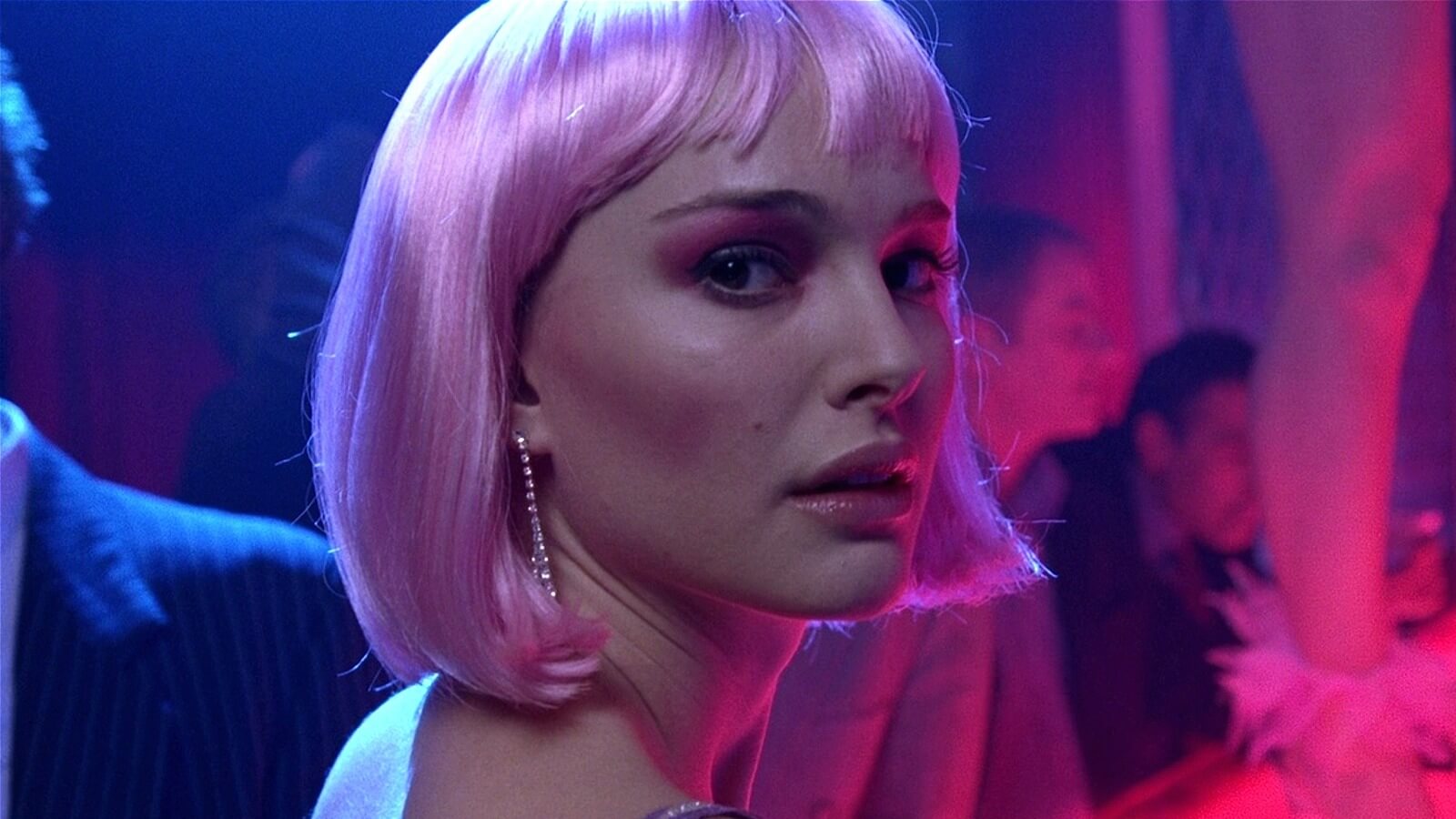
A recurring theme through all the arrangements, regardless of their changes and transformations, is the theme of truth.
A crippled truth, as it is never accompanied by noble motives, does not stem from a need for honesty, and is not an end in itself. Truth appears when the person uttering it wants to achieve something—something that serves only them. When they want to absolve themselves, alleviate a nagging sense of guilt, give themselves a pretext to leave, or shirk responsibility. And this truth invariably not only hurts but also marks the immediate end of everything. Happiness ends the moment it is spoken, as if by the touch of a magic wand. It lasts until deception is celebrated.
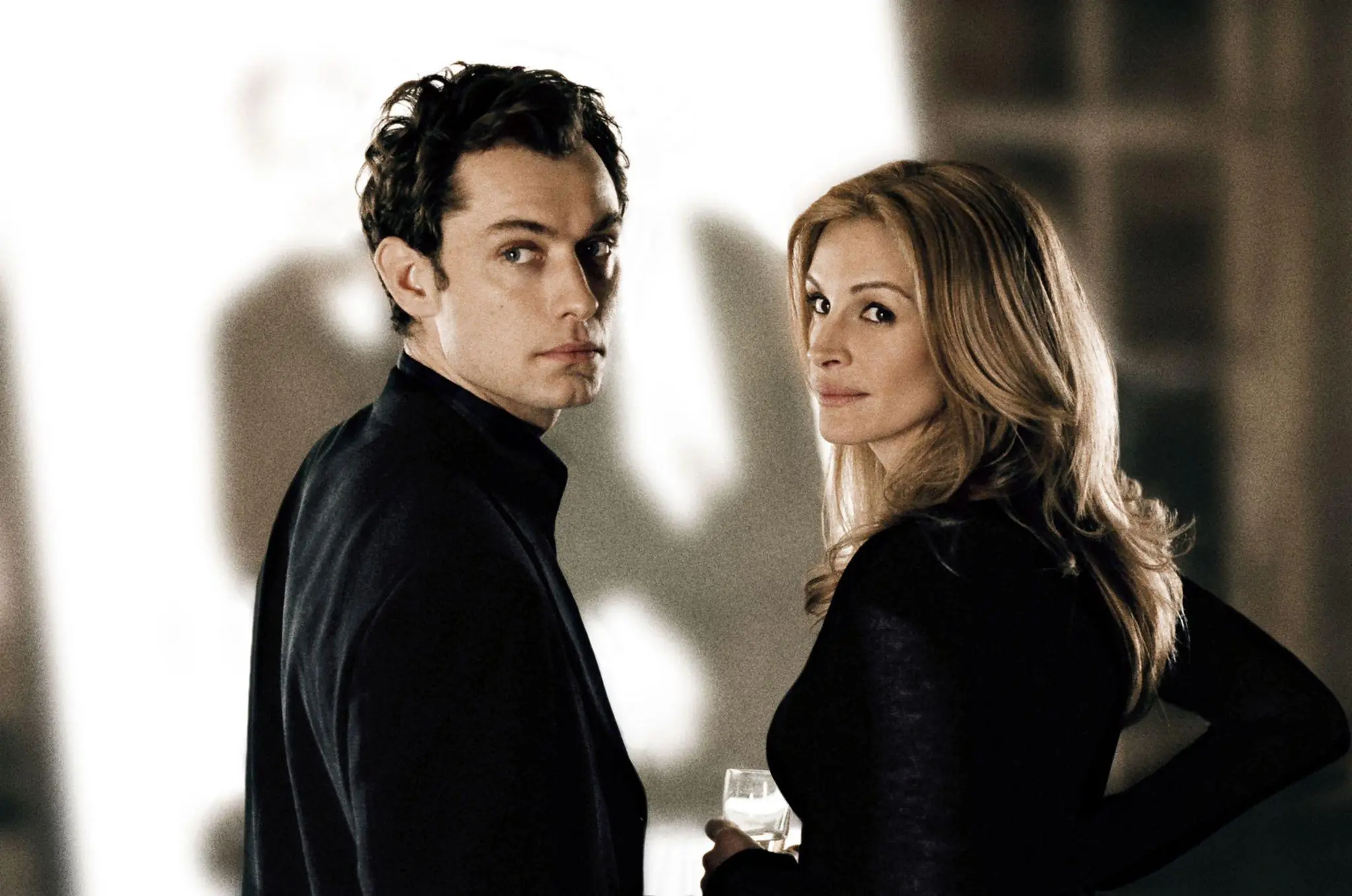
All the characters live under the illusion that truth is a necessity stemming from love.
They perceive it as a noble value, a path so difficult that choosing such a burdensome path automatically cleanses them of sin. The result is that the only untainted, entirely pure truth that is spoken here is considered a lie—a dirty lie, aimed at hiding one’s weaknesses, a cowardly lie. It’s the scene when Larry, in a nightclub, demands that Alice tells him her name. When faced with complete honesty, he despises it because the circumstances testify against her.
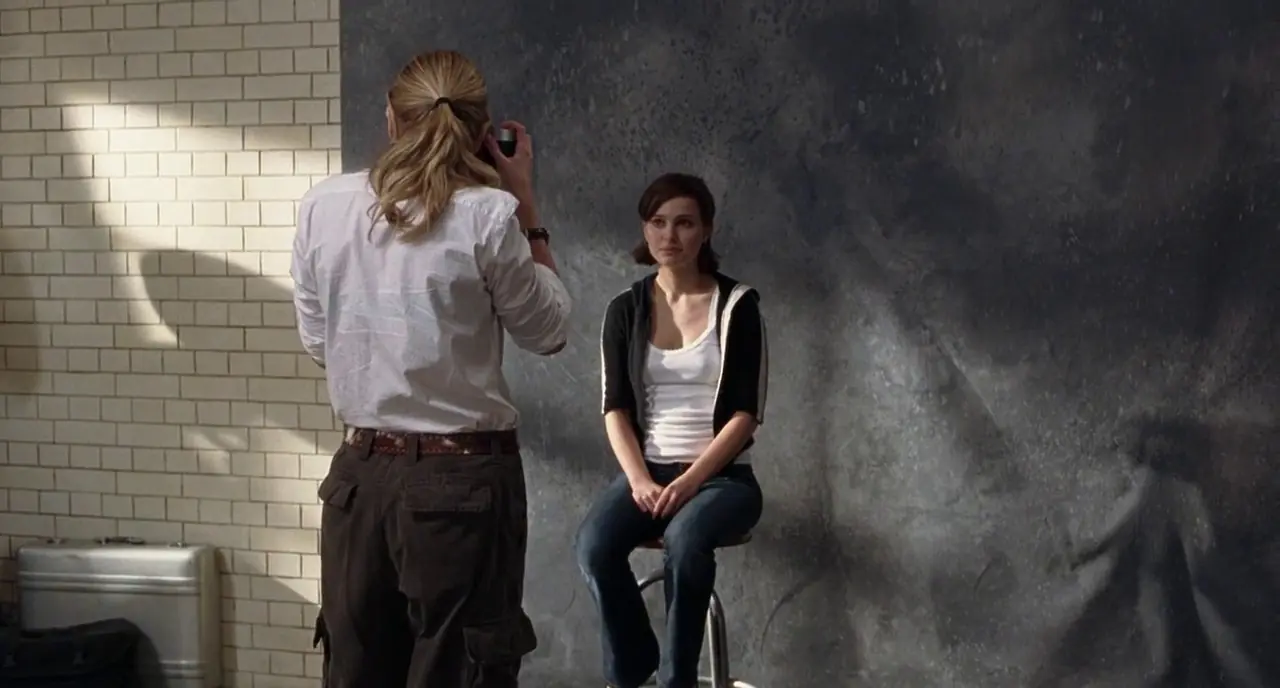
And conversely, the lie is embraced with joy because its packaging tempts the eye with its aesthetic sophistication.
Even Dan’s self-flagellation, when he tells Alice about his betrayal (I’m a coward and a selfish person), is a convenient excuse in which he comfortably ensconces himself. Since he is a coward, since he is selfish, how can anyone hold it against him? That’s just the way he is. Weak. The escape from responsibility is a recurring theme here. Dan can unhesitatingly answer why he is drawn to Anna. It’s because she doesn’t need him. Is more proof needed to demonstrate all the traits he accuses himself of? But he repeats them aloud like a mantra, thus shielding himself from answering Alice’s simple question of why her love is not enough.
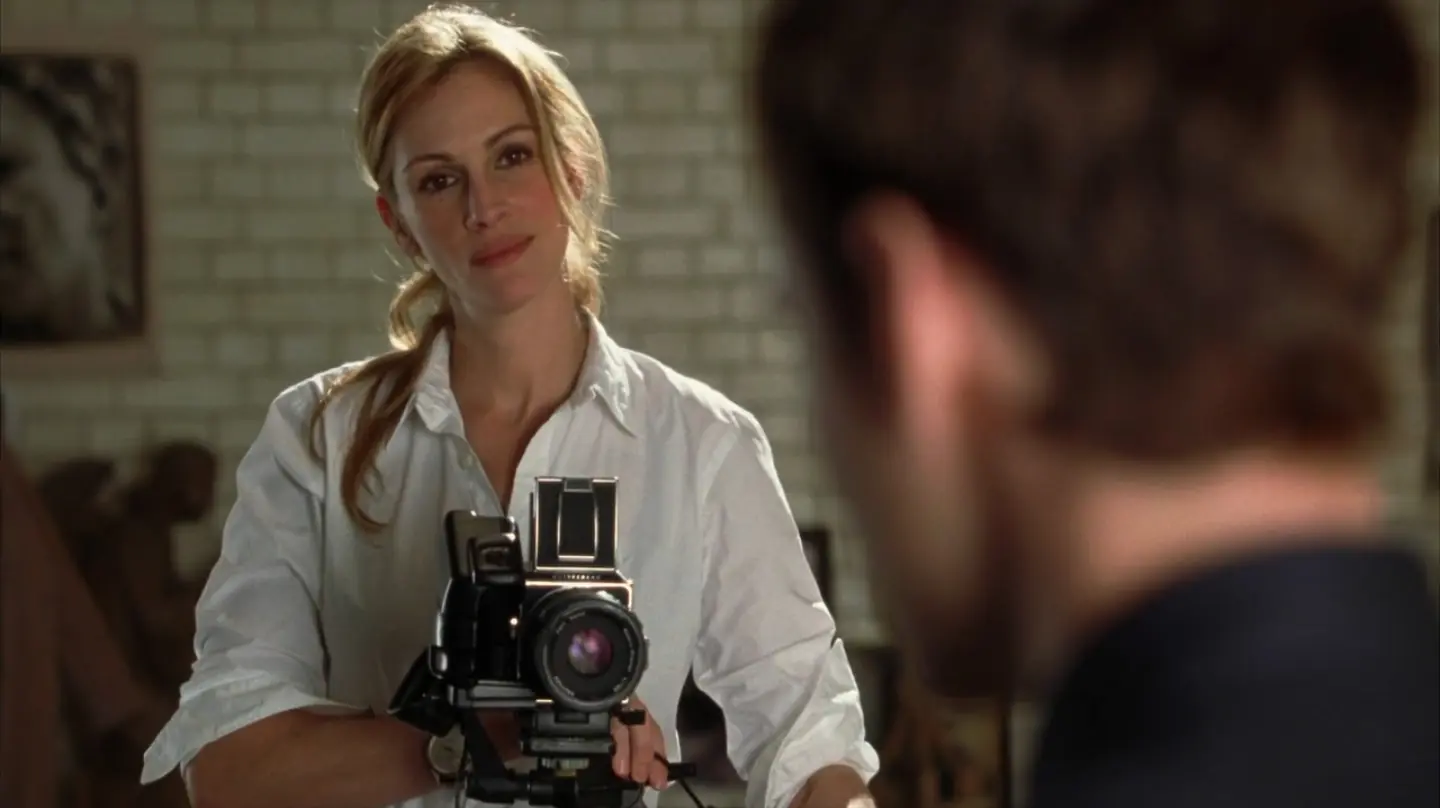
The happiness hidden in lies is a kind of agreement, which none of them ultimately wants to honor.
Subsequent scenes confirm this more effectively. The buzzword here is the scene in which Larry confesses to Anna about a brief erotic adventure he had during a business trip to New York. He tells her this, adding that he does so because he loves her. And love does not tolerate secrets. What will he hear in return? He will hear about the affair his wife has been having with Dan for a year. I fell in love, I love him because I love him. Many words about love are spoken here, but they still come from the mouths of people who only care about themselves and value only their vision. Much later, Larry tells Dan about Anna: She needs to feel guilty. Where is the love here, and more emphatically, where is the mature decision? Of the same woman who fled from a kiss, only to be tempted by a much more sophisticated deception? The truth has been spoken, and happiness ends—but the fight for ownership does not end. Anna flawlessly chooses those paths of action that will be more painful for her. Larry, on the other hand, manipulates her like a seasoned player.
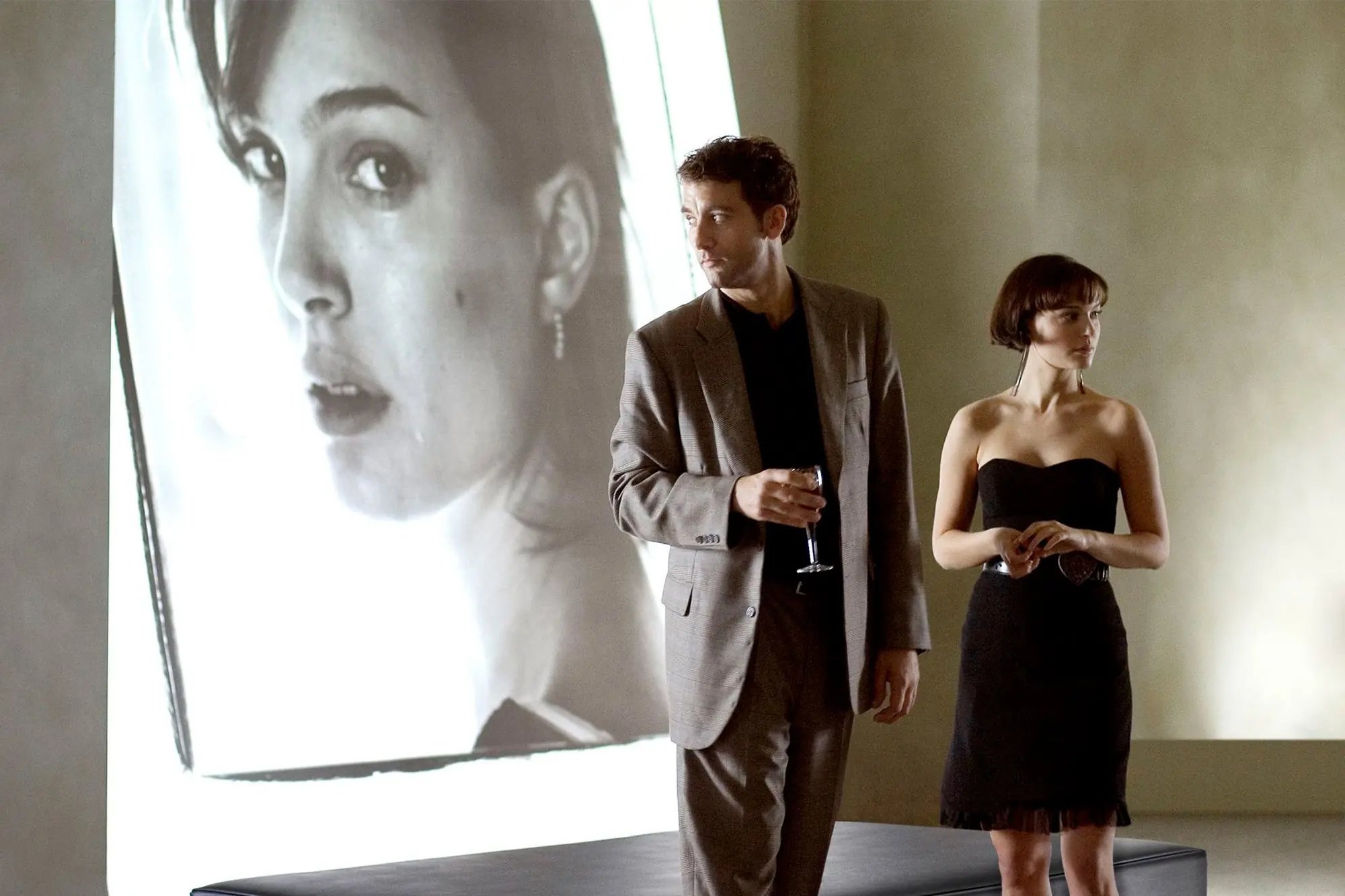
And again: we meet Anna and Dan, seemingly, in the bloom of feeling.
Larry has just signed the divorce papers. However, he signed it for the price of one last encounter. Quick, calculated, like a business transaction. Anna paid that price. And Larry cleverly persuades her to confess the truth to Dan—because in such situations, “the truth always pays off more.” And happiness ends again, after all the acrobatic efforts for freedom and happiness, Anna, however, turns away from Dan and decides to return to Larry. Once again, many words that mean nothing.
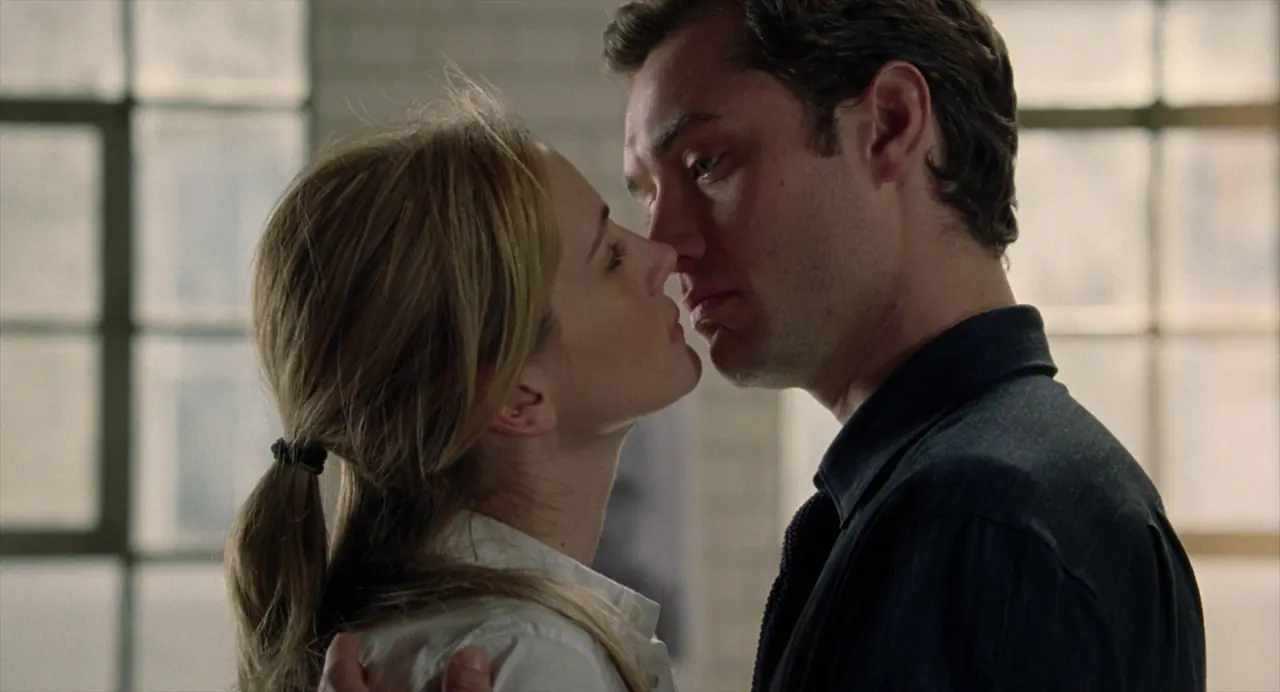
And now the conversation that Dan has with Larry in his office.
Smooth and cultured. Desperate, and how much easier it would be if it turned out to be sincere. Yet the entire conversation is a lie. Larry tells Dan where he can find Alice, giving him the address of the club where the girl works. But at the last moment, when Dan is already at the door, he sharply throws: Yes, I slept with her. He says this because he can’t forgive or forget.
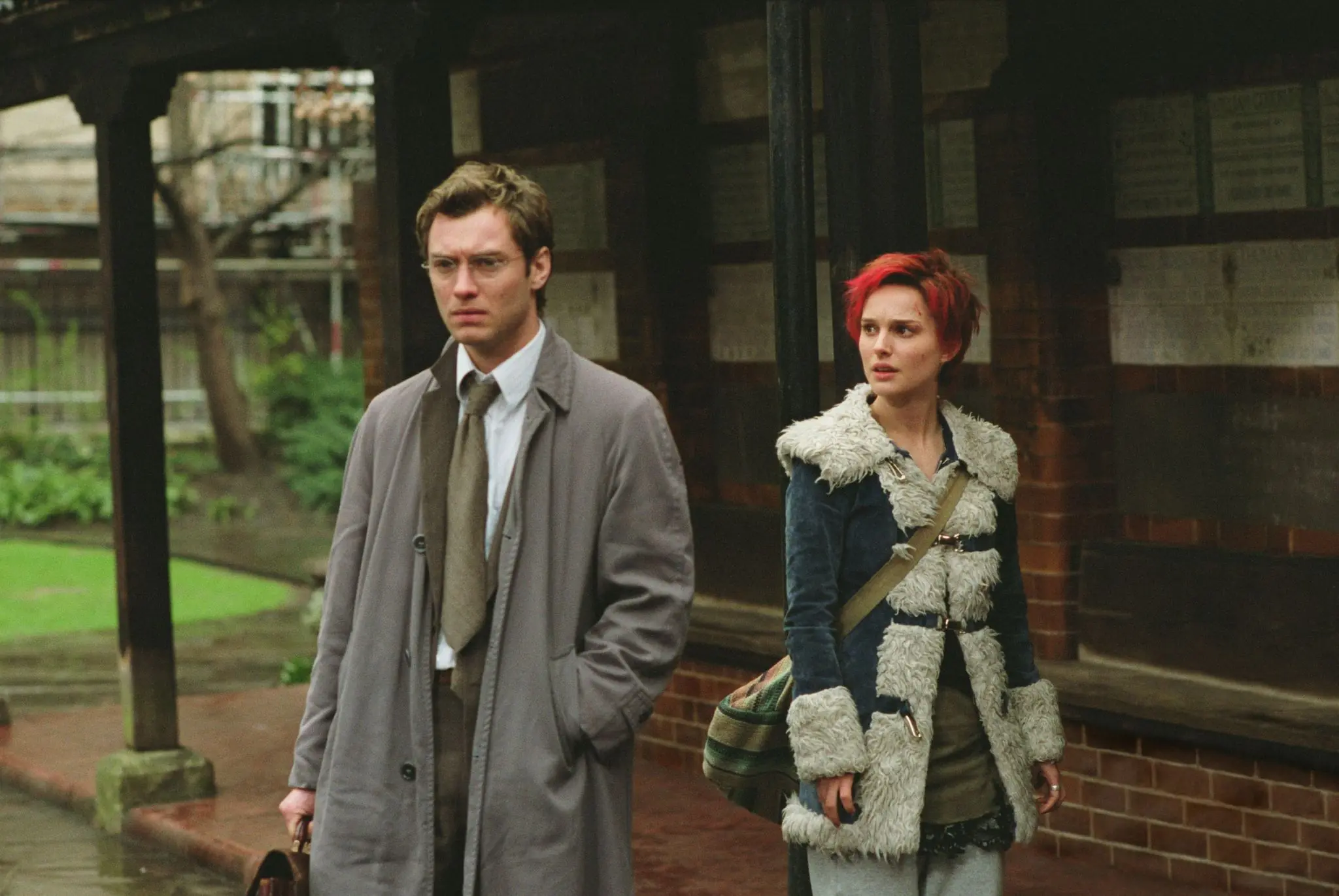
Alice understands this best.
She knows how relative the truth is and that there are moments when it is not absolutely necessary. She gives Dan a chance to recognize this as well. But he does not take this chance. He demands information to which he has no moral right—he, who betrayed, deceived, and abandoned. And he gets in return the most honest and true lie of all that has been spoken so far. A lie forged from a much nobler metal than all the “truths” the characters have shared so far.
“I don’t love you anymore.”
“Since when?”
“Since now.”
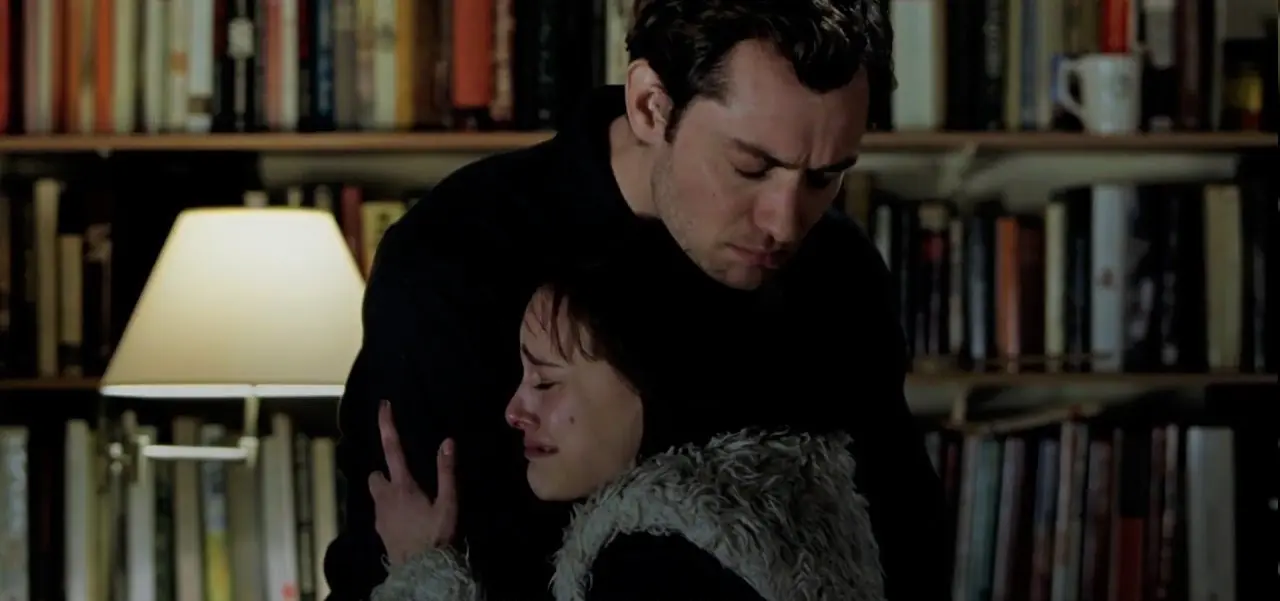
In the first conversation they had four years ago, Alice told Dan she had never left anyone she loved.
She breaks this rule because Dan’s questions have made her painfully aware that nothing will change. That his supposed affection will never give her any guarantee, precisely because she reciprocated it so fervently. Dan could not prove himself where true love must be felt, not just talked about, or worse, talked about the rules that should govern it. All of them—the entire broken quartet—cannot connect in feeling. Like puppets, they are led by every slightest emotion they feel at the moment, each of which belongs only to them. At the root of each one lies selfishness and the desire to reach for what will satisfy their desires, just as a child reaches for a toy.
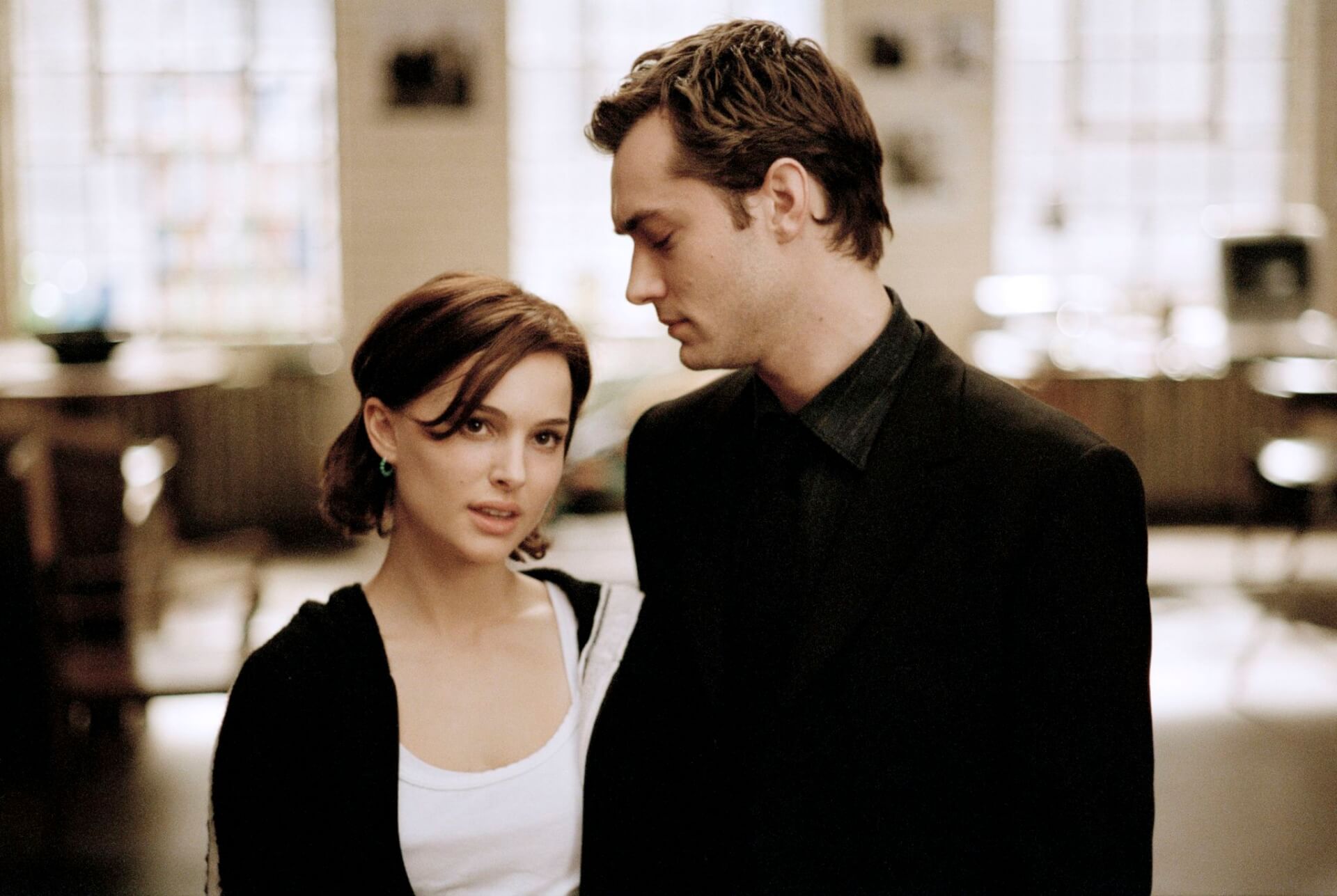
This game of sincerity is, consequently, a double lie.
Here no action is motivated by true love. And truth without love does not really liberate—it only wounds. Hurting is easier—because then the guilt is associated with the very fact of hurting, not with the action that ultimately led to it.
The youngest of the four, Alice, is the most mature and paradoxically the most honest.
Although it was she who hid behind a false name from the very beginning, as if she had put on a mask by default. This is where the perversity of Nichols‘ vision lies, the essence of his game with sincerity and deception. She alone believes in her love, she alone we see at the moment when her face is painfully exposed, in that moment captured by Anna’s camera. And she leaves when she makes that decision herself, leaving no room for a replay.
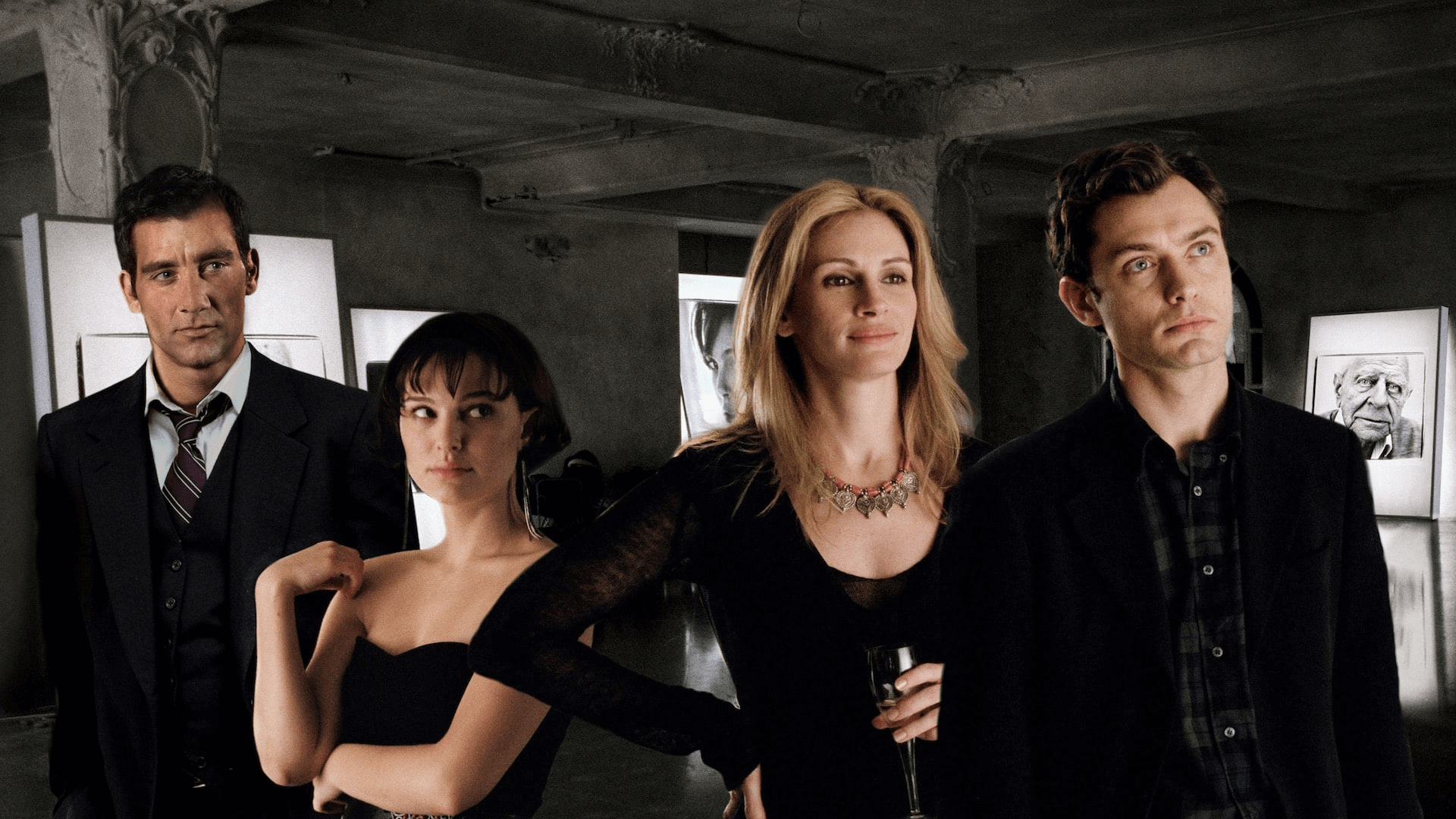
This is not an image that leaves pleasant impressions, uplifting or optimistic.
We observe people in a dishonest game, juggling values with ease that disturbs the sense of security. All of this equally provokes reflection and concern. However, I have the impression that the thesis about the subjective perception of truth is, in its negative aspect, somewhat narrowed. Probably because I still believe in individuality, for which there is no place in the delicate matter of feelings for absolutely right prescriptions. And since we are talking about this, for those absolutely wrong—also.

